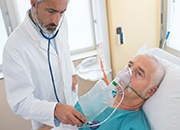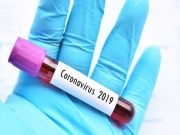
If a loved one is dealing with COVID-19 at home, there are several steps you can take to aid in their recovery. First and foremost: Limit your direct exposure to them. Stay 6 feet away whenever you can. “If possible, sleep in different rooms, use different bathrooms, and have your family member isolate him- or… read on >


















